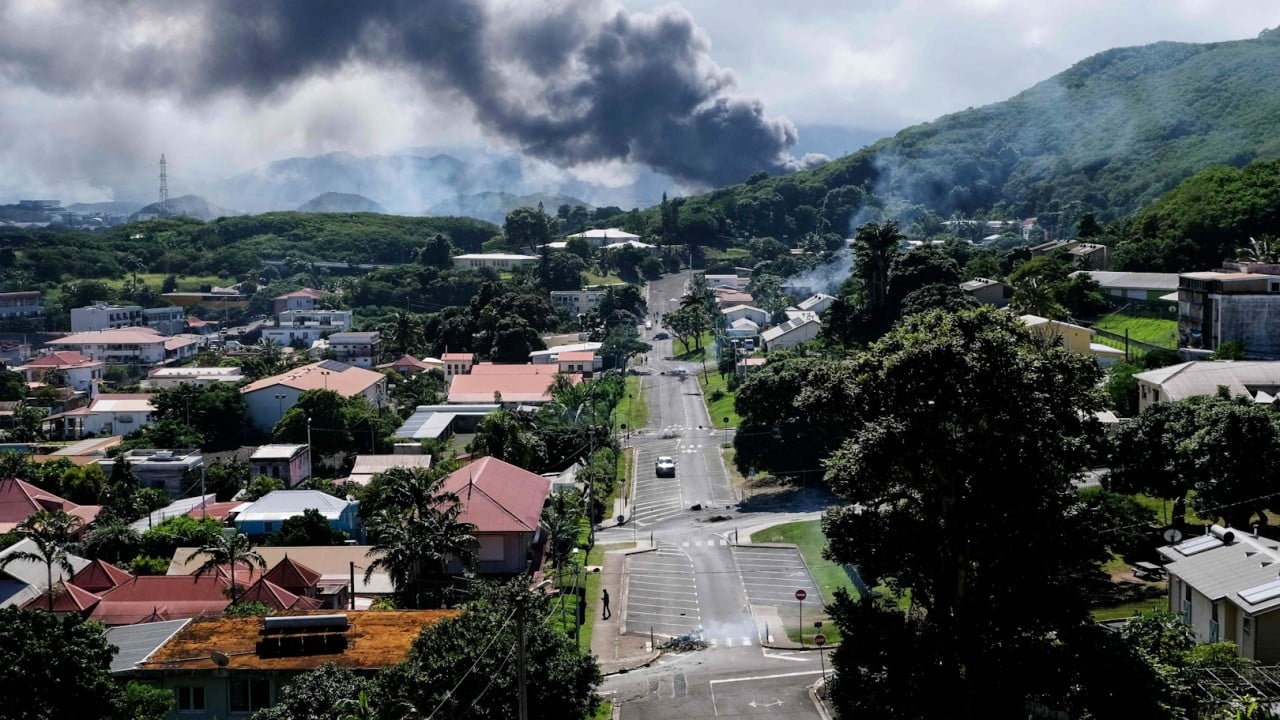France’s far-right National Rally (RN) party was seen leading the first round of parliamentary elections with around 34 per cent of votes, pollsters IFOP, Ipsos, OpinionWay and Elabe said on Sunday.
The left-wing New Popular Front (NFP) coalition was seen coming in second with around 29 per cent, ahead of President Emmanuel Macron’s centrist bloc in third spot with between 20.5-23 per cent.
Elabe said in an estimate for BFM TV that the National Rally and its allies could win between 260-310 parliament seats in the second voting round on July 7, while Ipsos projected a range of 230-280 seats for RN and its allies in a poll for France Television.
289 seats are needed for an absolute majority in the National Assembly, France’s lower house of parliament.
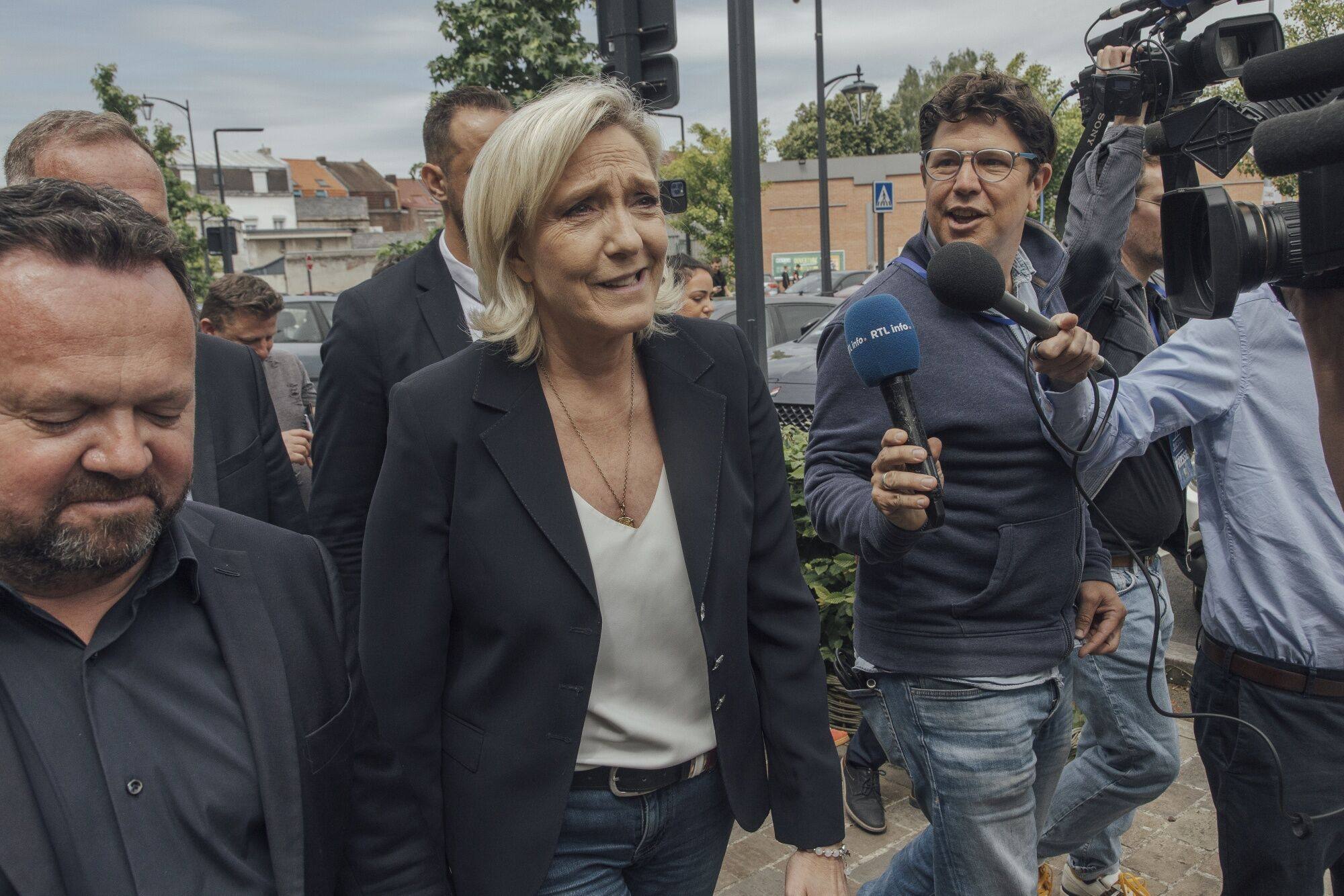
“Faced with National Rally, the time has come for a broad, clearly democratic and republican alliance for the second round,” Macron said in a statement. He also said that the high turnout in the first round spoke of “the importance of this vote for all our compatriots and the desire to clarify the political situation”.
National Rally leader Marine Le Pen said Macron’s camp has been “almost wiped out”. She said she wants an “absolute majority” in parliament for the far-right.
Sunday’s vote is the first round of high-stakes early parliamentary elections that could put the government in the hands of nationalist, far-right parties for the first time since the Nazi era.
The two-round elections that wrap up on July 7 could impact European financial markets, Western support for Ukraine and the management of France’s nuclear arsenal and global military force.
Many French voters are frustrated about inflation and other economic concerns, as well as Macron’s leadership, seen as arrogant and out-of-touch with their lives. Le Pen’s anti-immigration National Rally party has tapped that discontent, notably via online platforms such as TikTok, and led in pre-election opinion polls.
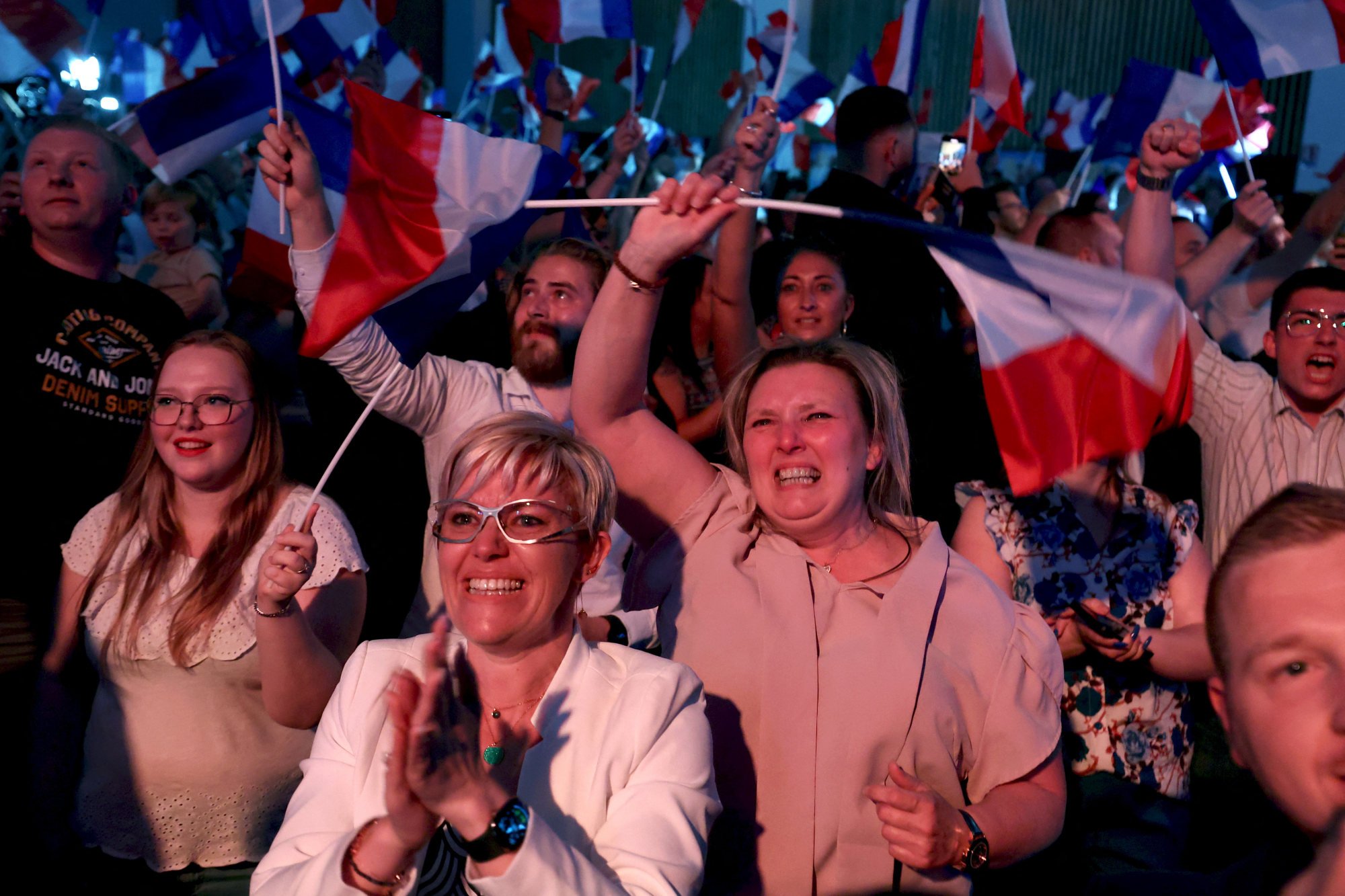
A new coalition on the left, the New Popular Front, also poses a challenge to the pro-business Macron and his centrist alliance Together for the Republic. It includes the French Socialists and Communists, the greens and the hard-left France Unbowed party and vows to reverse an unpopular pension reform law that raised the retirement age to 64, among other economic reforms.
There are 49.5 million registered voters who will choose the 577 members of the National Assembly, France’s influential lower house of parliament.
Some pollsters suggested the high turnout could temper the outcome for the hard right National Rally, possibly indicating voters made an extra effort to cast ballots for fear that it could win.
The vote was taking place during the traditional first week of the summer holiday in France, and postal vote requests were at least five times higher than in 2022.
Macron voted in Le Touquet, a seaside resort in northern France. Le Pen also voted in the north, her party’s stronghold, but in the working-class town of Hennin-Beaumont.
Voters in Paris had issues from immigration to the rising cost of living on their minds as the country has grown more divided between the far-right and far left blocs, with a deeply unpopular and weakened president in the political centre. The campaign was marred by rising hate speech.
“People don’t like what has been happening,” said Cynthia Justine, 44. “People feel they’ve lost a lot in recent years. People are angry. I am angry.” She added that with “the rising hate speech”, it was necessary to express frustrations with those holding and seeking power.
Macron called the early elections after his party was trounced in the European Parliament election earlier in June by the National Rally, which has historic ties to racism and antisemitism and is hostile toward France’s Muslim community. It also has historical ties to Russia.
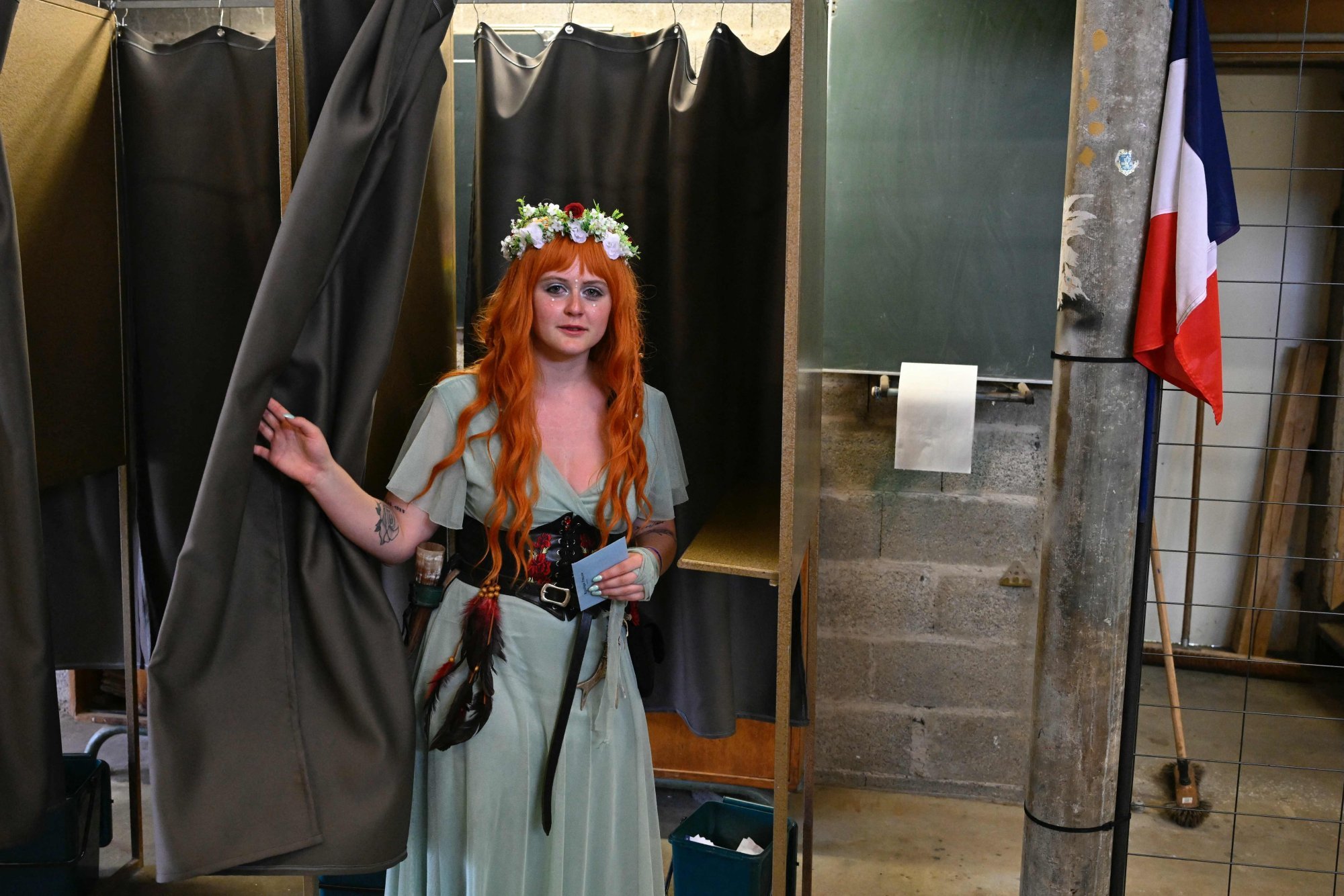
Macron’s call was an audacious gamble that French voters who were complacent about the European election would be jolted into turning out for moderate forces in national elections to keep the far-right out of power.
In the event that the National Rally wins a parliamentary majority, Macron would be expected to name 28-year-old National Rally President Jordan Bardella as prime minister in an awkward power-sharing system known as “cohabitation”.
While Macron has said he will not step down before his presidential term expires in 2027, cohabitation would weaken him at home and on the world stage.
A 64-year-old voter, Philippe Lempereur, expressed fatigue with politicians from the left, right and centre and what he called their inability to work together on issues such as ensuring people have shelter and enough to eat. “We vote by default, for the least worse option,” he said. “I prefer to vote than do nothing.”
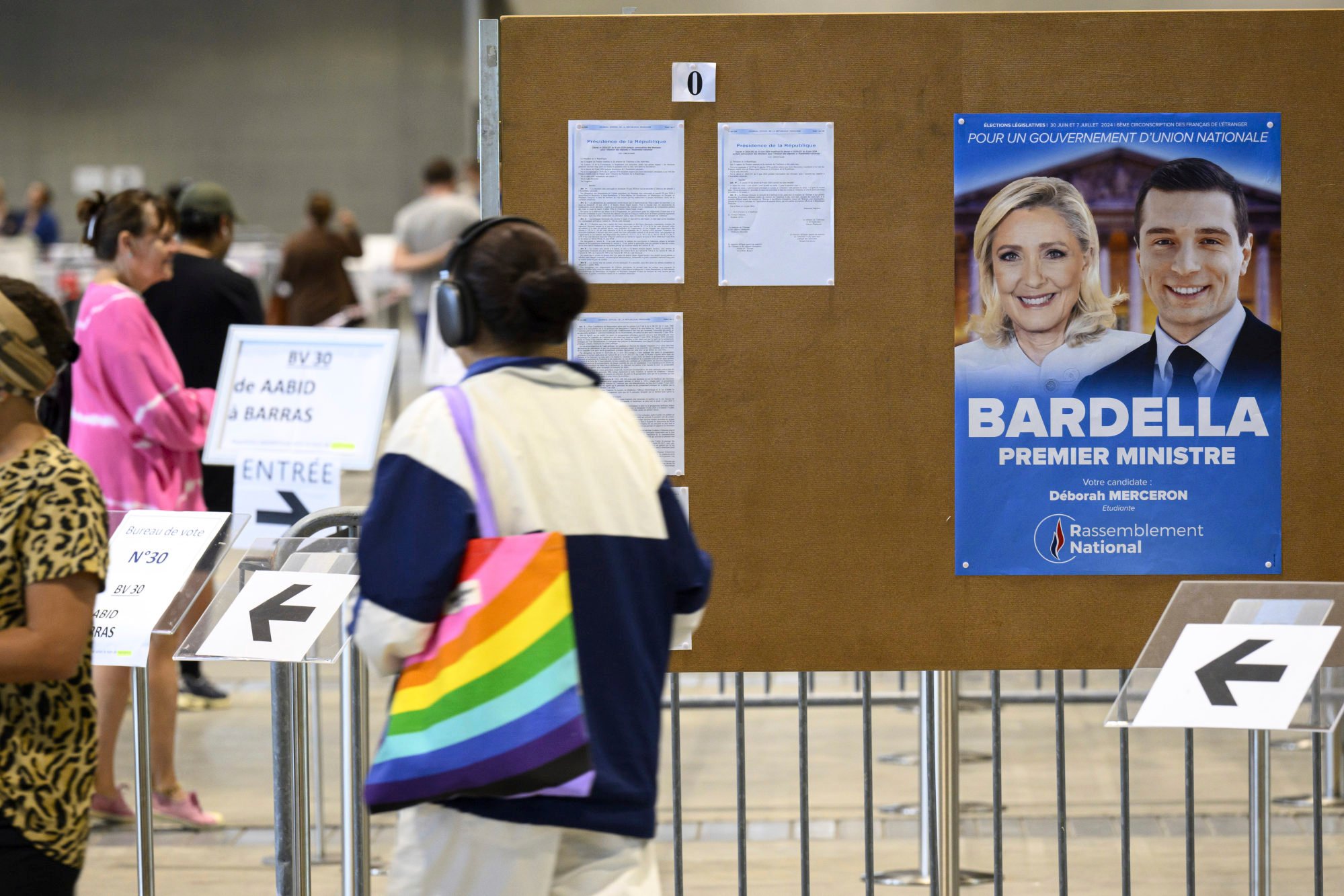
Bardella, who has no governing experience, says he would use the powers of prime minister to stop Macron from continuing to supply long-range weapons to Ukraine for the war with Russia.
The National Rally has also questioned the right to citizenship for people born in France, and wants to curtail the rights of French citizens with dual nationality. Critics say this undermines human rights and is a threat to France’s democratic ideals.
Meanwhile, huge public spending promises by the National Rally and especially the left-wing coalition have shaken markets and ignited worries about France’s heavy debt, already criticised by EU watchdogs.
In the restive French Pacific territory of New Caledonia, polls closed earlier because of a curfew that authorities have extended until July 8. Violence there flared last month leaving nine people dead, because of attempts by Macron’s government to amend the French Constitution and change voting lists, which the Indigenous Kanaks feared would further marginalise them. They have long sought to break free from France.
Voters in France’s other overseas territories of Saint-Pierre-et-Miquelon, Saint-Barthélemy, Saint-Martin, Guadeloupe, Martinique, Guyana and French Polynesia and those voting in offices opened by embassies and consular posts across the Americas cast their ballots on Saturday.
Additional reporting by Agence France-Presse, Associated Press


